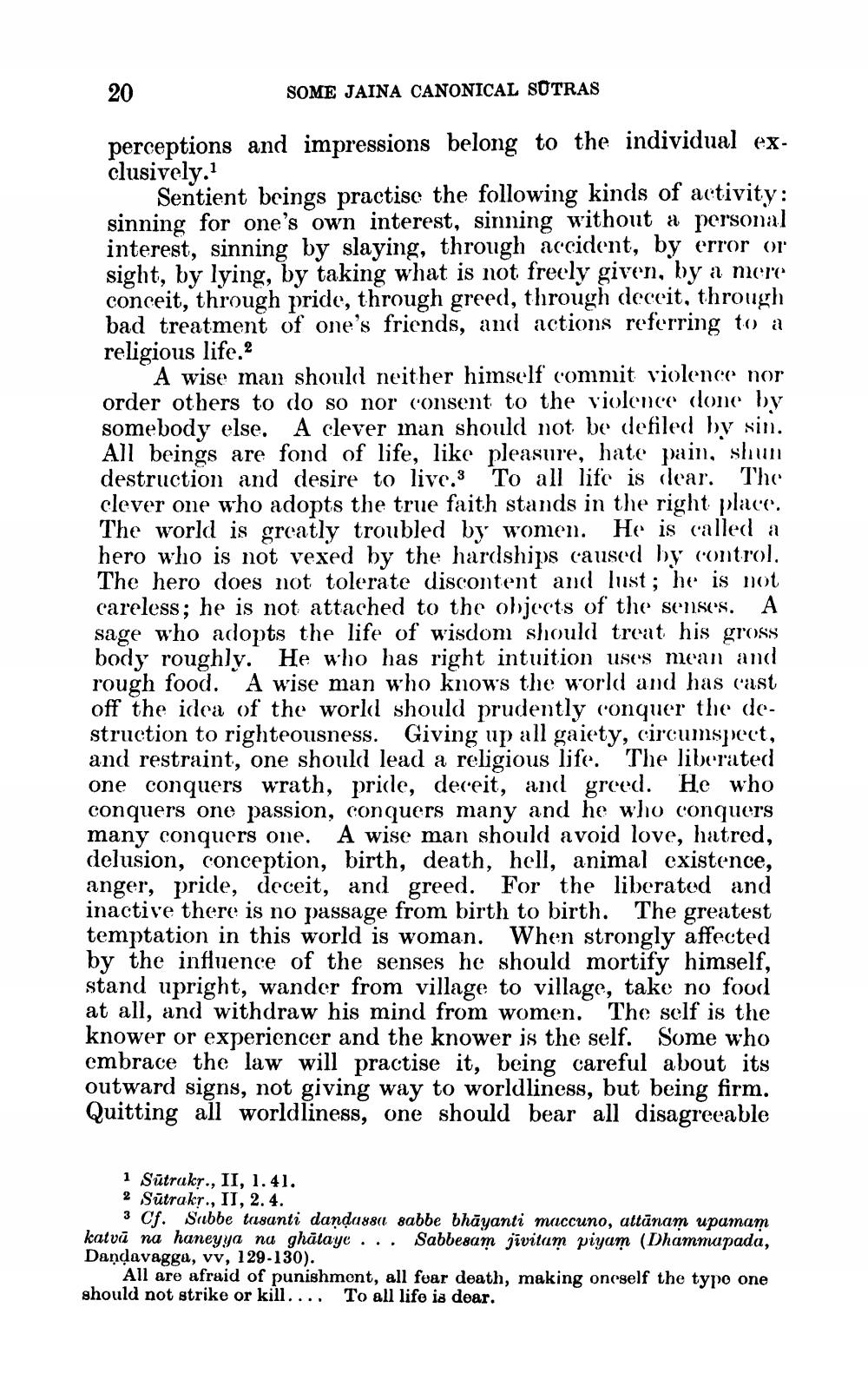________________
20
SOME JAINA CANONICAL SOTRAS
perceptions and impressions belong to the individual exclusively.1
Sentient beings practise the following kinds of activity: sinning for one's own interest, sinning without a personal interest, sinning by slaying, through accident, by error or sight, by lying, by taking what is not freely given, by a mere conceit, through pride, through greed, through deceit, through bad treatment of one's friends, and actions referring to a religious life.2
A wise man should neither himself commit violence nor order others to do so nor consent to the violence clone by somebody else. A clever man should not be defiled by sin. All beings are fond of life, like pleasure, hate pain, shun destruction and desire to live.3 To all life is clear. The clever one who adopts the true faith stands in the right place. The world is greatly troubled by women. He is called a hero who is not vexed by the hardships caused by control. The hero does not tolerate discontent and lust; he is not careless; he is not attached to the objects of the senses. A sage who adopts the life of wisdom should treat his gross body roughly. He who has right intuition uses mean and rough food. A wise man who knows the world and has cast off the idea of the world should prudently conquer the destruction to righteousness. Giving up all gaiety, circumspect, and restraint, one should lead a religious life. The liberated one conquers wrath, pride, deceit, and greed. He who conquers one passion, conquers many and he who conquers many conquers one. A wise man should avoid love, hatred, delusion, conception, birth, death, hell, animal existence, anger, pride, deceit, and greed. For the liberatod and inactive there is no passage from birth to birth. The greatest temptation in this world is woman. When strongly affected by the influence of the senses he should mortify himself, stand upright, wander from village to village, take no food at all, and withdraw his mind from women. The self is the knower or experiencer and the knower is the self. Some who embrace the law will practise it, being careful about its outward signs, not giving way to worldliness, but being firm. Quitting all worldliness, one should bear all disagreeable
1 Sūtrakr., II, 1.41. 2 Sūtrakr., II, 2.4.
3 Cf. Subbe tasanti danda881 sabbe bhāyanti maccuno, attānam upamam katvā na haneyya na ghātaye ... Sabbesam jivitam piyam (Dhammapada, Dandavagga, vv, 129-130).
All are afraid of punishment, all foar death, making oneself the typo one should not strike or kill.... To all life is dear.




